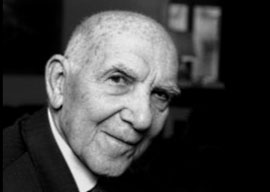
January 16, 2011

Students at his alma mater, the Ãcole Normale Supérieure, invited Hessel to address them in Paris on January 18. Popular with young people throughout France, Hessel was likely to attract a full house. Then the authorities stepped in. Madame Monique Canto-Sperber, the school’s director, withdrew the invitation. A pro-Israeli French website, Des Infos, praised Mme. Canto-Sperber’s decision:
“There are men and women in this country of intellectual courage. Mme. Monique Canto-Sperber, director of the Ãcole Normale Supérieure, is an example. She has on the afternoon of January 12 2011 canceled a scandalous conference-debate.”
It’s the first time I”ve heard someone praised for the moral courage of canceling a debate. The courage was not confined to the school’s censorious director. The Representative Council of Jewish Institutions of France praised those, such as Minister of Higher Education Valérie Pécresse and self-styled philosopher Bernard-Henri Lévy, who favored suppressing Hessel’s right to speak.
The talk remained canceled. Victory for free speech? In the bizarre world of French philosophical discussion, preventing a speaker from speaking could be nothing else. Madame Canto-Sperber wrote in her book, Moral Disquiet in Human Life, “The freedom of thought is the first precondition of any thought process.” Her students are free to think any thought presented to them by whichever lecturers she approves. What more freedom does their thought require? French reaction has been swift. More than 10,000 people have signed a petition demanding that Hessel be permitted to speak.
Last June in London on the anniversary of de Gaulle’s June 18 appeal to the French people, Hessel gave an interview in which he said:
“I was 23 in 1940, so needless to say that those five years really had a huge impact on me. This is a war that I experienced in many ways: as a simple soldier in 1939 and 1940 before the French army’s defeat, as a trainee in the Royal Air Force, as a Free French fighter working in the secret services in London, as a Resistance fighter in France, as a prisoner at the hands of the Gestapo and then as an inmate in two concentration camps… Of this long and arduous adventure, something clearly emerged: the need to give a sense to my life by defending the values that the Nazis had scorned”which led me to become a diplomat immediately after the War and to join the United Nations, where I contributed to write the Universal Declaration of Human Rights.”
The old Resistance fighter is prepared for battle with those who would deny him his well-earned platform. Having taken on the Nazis, survived two concentration camps, and kept his mind and spirit intact for ninety-three years, he”ll do fine against Sarkozy’s fonctionnaires and their apologists.